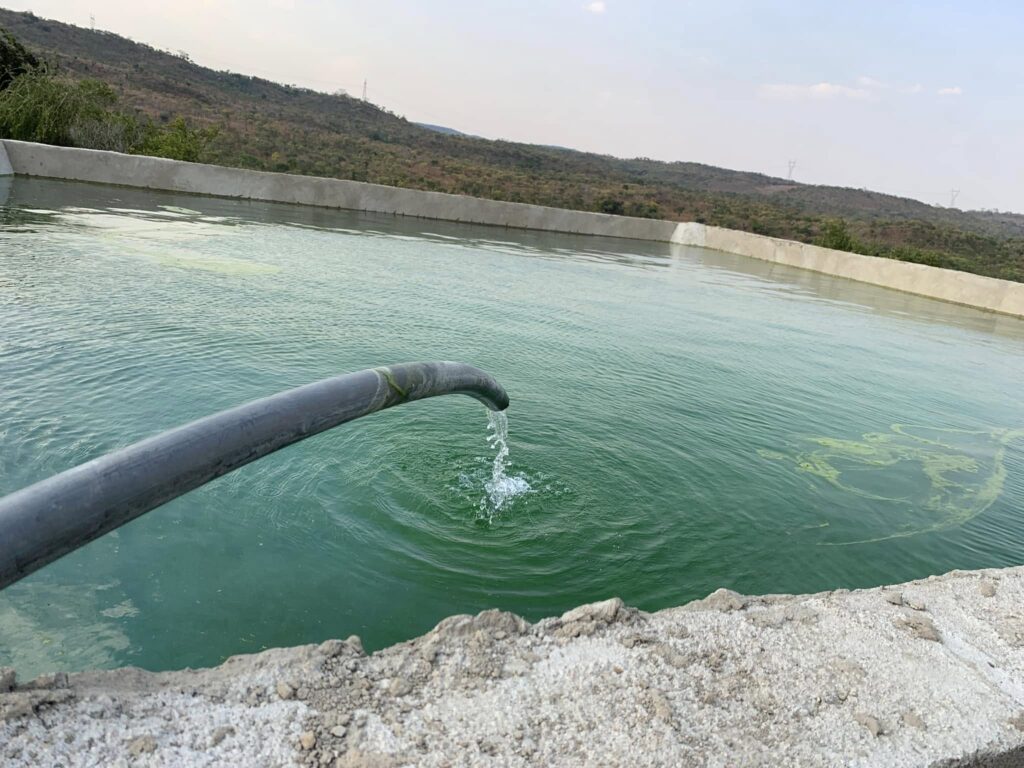
IN AGRICULTURE, WATER IS KING.
“Water is the lifeblood of farming—without it, nothing grows. Manage it wisely, and the land will reward you abundantly.”
Water is indispensable in agriculture, not only for sustaining crops and livestock but also for supporting soil health, improving productivity, and contributing to food security. Efficient water management is essential for ensuring the continued success and sustainability of agricultural systems, especially as climate change and population growth place increasing pressure on water resources.
How to store water
Water storage is key to ensuring a sustainable irrigation system. The farm has three types of water storage:
Underground Reservoir
This reservoir is built below the surface, helping to store large amounts of water while preventing evaporation. It allows for long-term water retention and is crucial for ensuring water availability during dry seasons.
Elevated Reservoir
This is a raised water storage structure that collects and holds water. It takes advantage of gravity, allowing water to flow naturally to different parts of the farm without the need for extra pumping. It also acts as a buffer, ensuring a steady supply of water for irrigation.
Water Tanks
These are above-ground tanks used for short-term water storage. They are strategically placed to supply specific areas of the farm, ensuring an efficient distribution system. The tanks store solar-pumped water, providing a reliable and Eco-friendly irrigation system.

Farm Ponds
Ponds are an excellent natural or man-made water storage option on a farm. They can be used for irrigation, livestock, and even aquaculture. A properly constructed farm pond can hold large amounts of water and is especially valuable during dry spells.
Farmers use a variety of methods to store water effectively, especially in areas with unreliable rainfall or water scarcity. By combining multiple water storage solutions, such as ponds, tanks, elevated reservoirs, rainwater harvesting systems and underground reservoirs, farmers can ensure they have a reliable and sustainable water supply for their agricultural operations. Each method can be tailored to specific needs, climate, and terrain, ensuring that water resources are used efficiently and stored effectively.

4 Comments